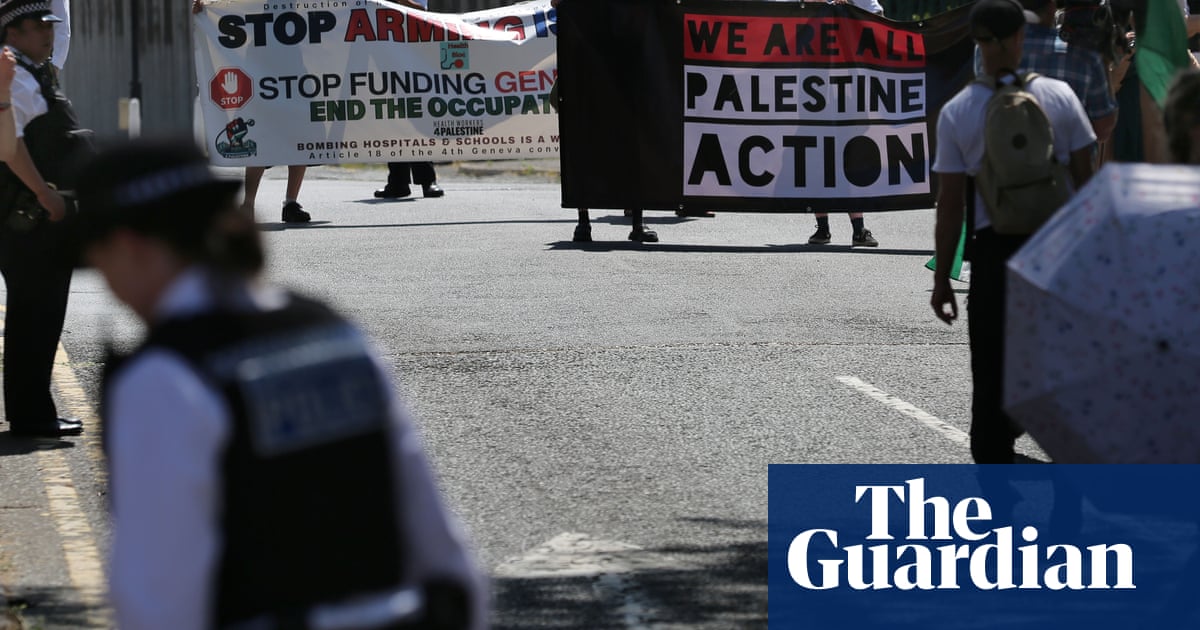The formal process for banning the direct action protest group Palestine Action under UK anti-terrorism laws has officially begun, withYvette Cooperlaying a statutory instrument before parliament on Monday.
Here the Guardian explains what this means and what happens next.
Theinstrumentsaid that Cooper, the home secretary, was making the proscription order under the Terrorism Act 2000, and that the organisations named were “concerned in terrorism”. It uses the plural, “organisations”, because two other groups are also named – Maniacs Murder Cult (MMC) and Russian Imperial Movement (RIM).
Cooper said MMC was a white supremacist, neo-Nazi organisation whose leaders and members had have claimed a number of violent attacks globally. She said RIM was a white supremacist, ethno-nationalist organisation that sought to create a new Russian imperial state.
With respect to Palestine Action, she said its “attacks” included at a Thales factory in Glasgow in 2022, and last year at Instro Precision in Kent and Elbit Systems UK in Bristol, adding: “The attack on the Thales defence factory in Glasgow caused over £1m worth of damage to parts essential for submarines. Staff fled for safety as pyrotechnics and smoke bombs were thrown in evacuation areas.
“Such acts do not represent legitimate acts of protest and the level of seriousness of Palestine Action’s activity has met the test for proscription under the Terrorism Act 2000.”
Palestine Actionposted videoit said was of staff walking out of the building in Thales because activists were on the roof, writing: “Do they look like they’re running for their safety? Escaping the flares and Palestine flags?”
MPs are due to debate and vote on the proscription order on Wednesday afternoon and – assuming MPs vote in favour – the Lords are provisionally due to do so from 5pm on Thursday.
Crucially, parliamentarians cannot choose to proscribe some of the organisations on the statutory instrument and not others – it is all or nothing – leading Palestine Action to accuse Cooper of grouping them within neo-Nazi groups to ensure the order is approved.
If it is, Cooper would sign the order, probably on Friday morning, and it would come into force on Saturday subject to a legal challenge (see below).
The home secretary ignored a lettersent by lawyersfor Palestine Action on the day she announced the proposed ban, in which they argued the order was “unlawful, dangerous and ill thought out”.
Interventions from third parties, including civil society organisations, lawyers and politicians, have also failed to sway ministers but Palestine Action has been granted an urgent hearing at the high court in London on Friday, which could prevent the order coming into effect.
The group is applying for interim relief, which Mr Justice Chamberlain said, at a hearing on Monday, would “have the effect of suspending [the order’s] operation”.
If the legal challenge is unsuccessful, then Palestine Action would be banned from Saturday, making membership of it – or inviting support for it – a criminal offence punishable by up to 14 years in prison.
However, the group would still be able to challenge the order and seek to quash it after came into effect. A high court hearing has been set for 21 July for them to apply for permission to do this.
